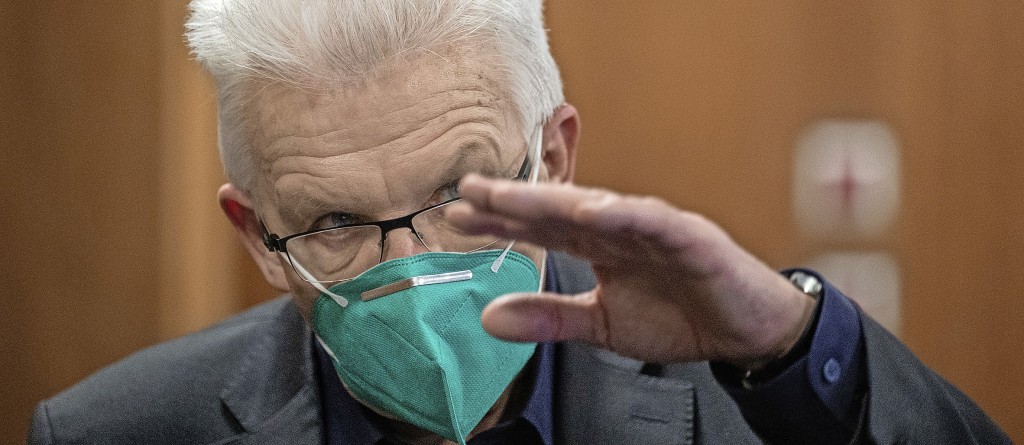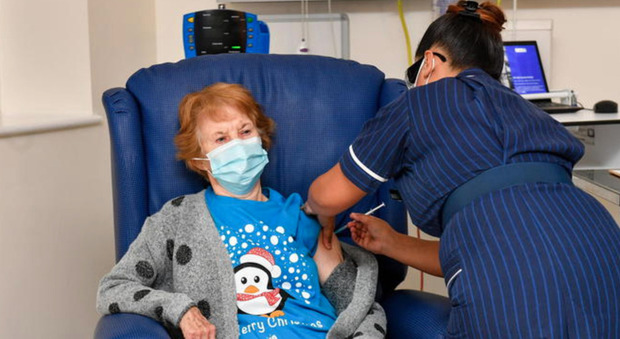State election on March 14th: The art of convincing voters without getting too close to them.
In nine weeks, Baden-Württemberg will elect a new state parliament. With the election taking place in Rhineland-Palatinate, it is the first state election in the corona lockdown. Accordingly, candidates find it difficult to plan their election campaign. Much is not allowed, others are considered irresponsible in view of the pandemic.
“It’s really difficult,” says Gabi Rolland. The member of the state parliament is running for the third time for the SPD in the constituency of Freiburg II. But the possibilities to get votes are limited this time. “Aside from sticking up posters and distributing publications, there isn’t much left.” She doesn’t know whether election booths are allowed. If so, the question for Rolland is whether it makes sense in the pandemic. What she definitely won’t do are house calls. Actually, that’s what she prefers to do. But ringing strangers with a face mask in dark hallways? This is not a good idea, she says.
With a heavy heart, Rolland is also likely to forego the visit of party celebrities this time. The question of proportionality arises here. Should she rent a hall for 25 visitors for an election campaign appearance by Federal Family Minister Franziska Giffey (SPD) because the hygiene regulations do not allow large gatherings of people? Much will consequently shift to the Internet.
Felix Fischer, FDP candidate in Emmendingen, has made a virtual home visit on his website. The 59-second clip is too short to talk about political issues, but at least that way you can get an impression of the candidate. For the election campaign, Fischer is planning a series of talks with FDP politicians, with whom he will talk for ten minutes.
Will the format work? “I hope so,” says Fischer. But he thinks the fear of going to a party event in an adjoining room of the inn is greater.
Michael Wehner, the head of the state center for political education in Freiburg, speaks of the “third exceptional election” in a row: In 2011 the election was influenced by the nuclear disaster in Fukushima and brought the Greens to the government, in 2016 there was a dispute over Angela Merkel’s refugee policy , which cost the CDU many votes and will be elected in the Corona lockdown in 2021. That could mean a continuation of the coalition, says Wehner. The CDU has been on the upswing nationwide since the pandemic and the Greens continued to benefit from Prime Minister Winfried Kretschmann’s bonus.
If so, the avowed black-green Patrick Rapp, CDU candidate and member of the state parliament in the constituency of Breisgau-Hochschwarzwald, would be happy. Rapp has prepared for an election campaign carried out via the media: newspapers, flyers, social networks. “We cannot ask people to keep their distance and then seek contact during the election campaign – that would be the wrong signal,” says Rapp.
“We are now driving on sight,” says Daniela Evers, who is running for the first time for the Greens in the Freiburg I constituency. In the past, the CDU always won here, but in 2011 the constituency tilted in favor of the Greens. At the moment, the corona regulations are constantly changing, says Evers. What is ultimately possible and allowed will be shown. Evers has decided to offer talks to at least the mayors of the 30 municipalities in the constituency and to listen to their concerns and wishes. She has also met with special target groups such as Fridays For Future with a maximum of ten people. The lawyer is hoping for a larger audience at a webinar she and her party friend Reinhold Pix organized with the Green State Transport Minister Winfried Hermann. A meeting with the other candidates is not yet planned – not even online. But that can still happen.
In the constituency of Emmendingen, the district youth organization has invited to an online podium on February 24th. “The question is who can I reach with what means?” Says political scientist Wehner. The parties have no choice but to switch to the digital world. However, the online election campaign proved to be extremely popular during the mayoral election in Stuttgart in autumn. Sometimes more people followed the events on the computer than there were eligible voters, says Wehner. Such experiences could be formative.
According to Wehner, the AfD only has a slight advantage in terms of presence in social networks. You could mobilize your voters with this, increases are no longer to be expected – the polls are currently predicting losses.
Above all, the Lörrach candidate Dubravko Mandic, who is also controversial in his own party, opposes it with sharp criticism of the federal and state corona policy.
With the refugee policy in 2016, the AfD had a more grateful topic for them. The left is also finding it difficult to score points in the Corona election campaign. They see the polls at five percent or below.
But the parties have learned one thing in the meantime, says Wehner: Election campaigns are often decided in the last few meters. It is not advisable to start too early.
–


![[기상센터][날씨] Cold wave from the Arctic, a little snow from the afternoon of the metropolitan area, Chungcheong, and Jeonbuk [기상센터][날씨] Cold wave from the Arctic, a little snow from the afternoon of the metropolitan area, Chungcheong, and Jeonbuk](https://image.ytn.co.kr/general/jpg/2021/0110/202101100535262108_t.jpg)